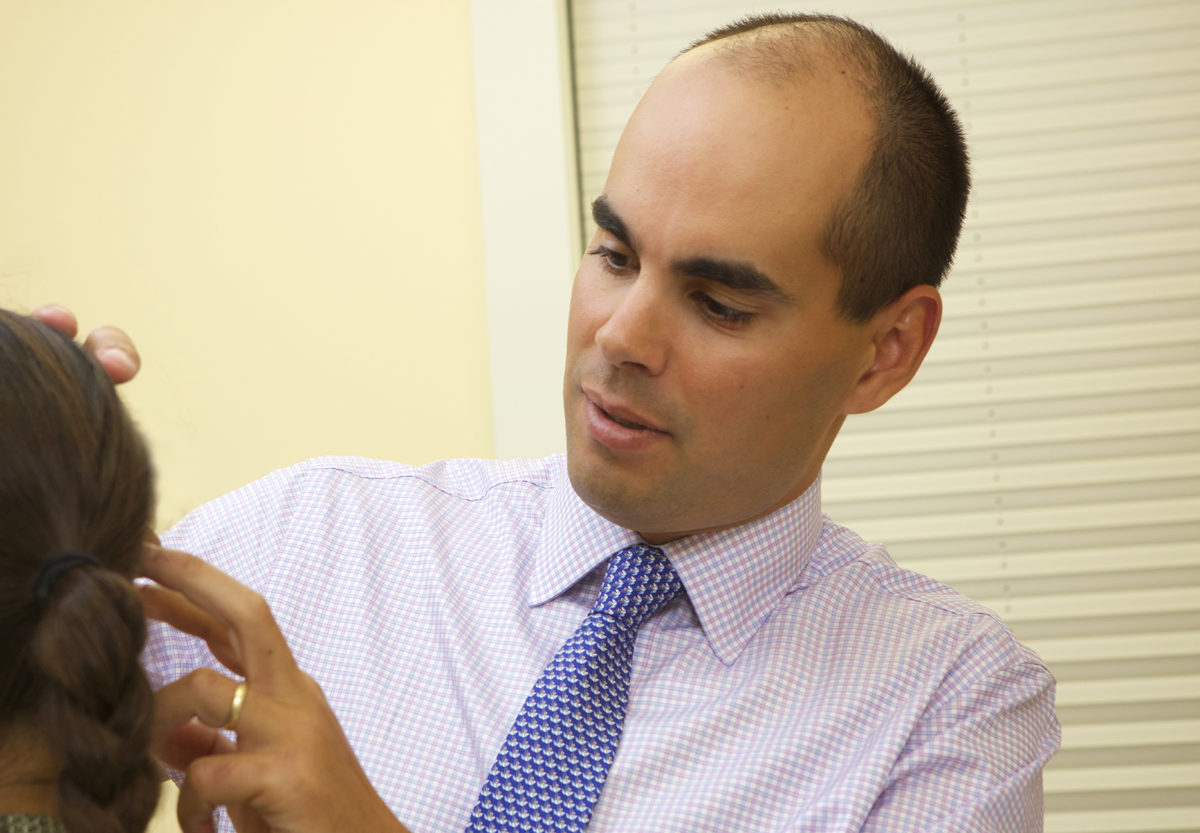For National Acne Awareness Month, Dr. Daniel Peraza answered some questions about acne.
Q: How often do people come to Peraza Dermatology Group for acne-related issues?
A: Peraza Dermatology Group focuses mostly on medical dermatology, but only about 10% of our patients come for acne. Many people are able to treat it with over-the-counter medications, and a lot of young people get advice and guidance from their pediatricians/primary care providers. What we see most frequently is the more severe, stubborn acne, usually with scarring, that is not responding to initial treatment efforts. As one might expect, a lot of the cases we see are teenagers with acne. Additionally, we see women in their 20s, 30s, 40s, or 50s who are dealing with more of a hormonal component of acne. Their hormones are playing a larger role, and pregnancy, birth control pills, and other factors can improve or hurt their complexion.
Q: What is the most common cause of acne?
A: Mostly it’s our genetics. Mom and Dad’s genes likely contribute to how long or how severe our acne will last. Sex hormones during the transition from adolescence to adulthood wreak havoc with our oil glands. We use that to guide our therapy, and we try to open up those pores. We use topical treatments, antibiotic washes, and gentle soaps, for starters. People have a tendency to try to scrub their acne away, but acne oftentimes gets worse with aggressive scrubbing.
Q: What is the simplest thing people can do at home to treat acne?
A: There are many good over-the-counter regimens. Benzoyl peroxide and salicylic acid are both proven to be effective in treating acne. As a rule, people come to our practice when they cannot get their acne under control. Frequently, patients feel very self-conscious, and want to improve their appearance and prevent permanent scarring. The most common question people have is whether their diet is causing their acne. We encourage all our patients to have a healthy diet. There are some reports that show that too much dairy can cause acne to flare. We recommend almond milk (not soy, which has natural estrogen) as an alternative to regular milk.
Q: Who gets acne?
A: Pretty much everyone, but to varying degrees. It is a problem everyone can relate to, and we want to minimize scarring, both physical and emotional. After successful treatment, most patients are pretty excited to not fret over their complexions. Adolescents don’t want to talk about their acne too much, they just want it to go away quickly; usually, within 6-8 weeks, patients will begin to see improvement in their acne. For teenagers, we have adopted a streamlined approach — treatment in the morning and again at night — so it is not too cumbersome. Kids are busy enough these days; they cannot deal with medicine five times a day.
Q: How long does it take to treat acne? How many consultations does it take?
A: It’s a process. The first step is always developing trust with patients. There is a reason why we ask them to follow a certain regimen we discuss. We let patients know what to expect, answer their questions, and give them as much information as possible. It is very important to set expectations. The single biggest reason acne treatments don’t work is lack of compliance. I bring patients back to our office in 4-6 weeks to make sure there are no issues. We also like to use these follow-up appointments to offer encouragement. Of course, we can always add or subtract treatment options. It is also a chance to talk about some of the common side-effects of acne medicines: dryness, irritation, sun sensitivity. With oral antibiotics, there can be some upset stomach. These are nuisances that kids don’t want to deal with, but they’re a reality. The good news is that, like almost all acne, these side effects are usually temporary.
Got more questions about acne? Make an appointment to get trustworthy answers and solutions for your acne.


